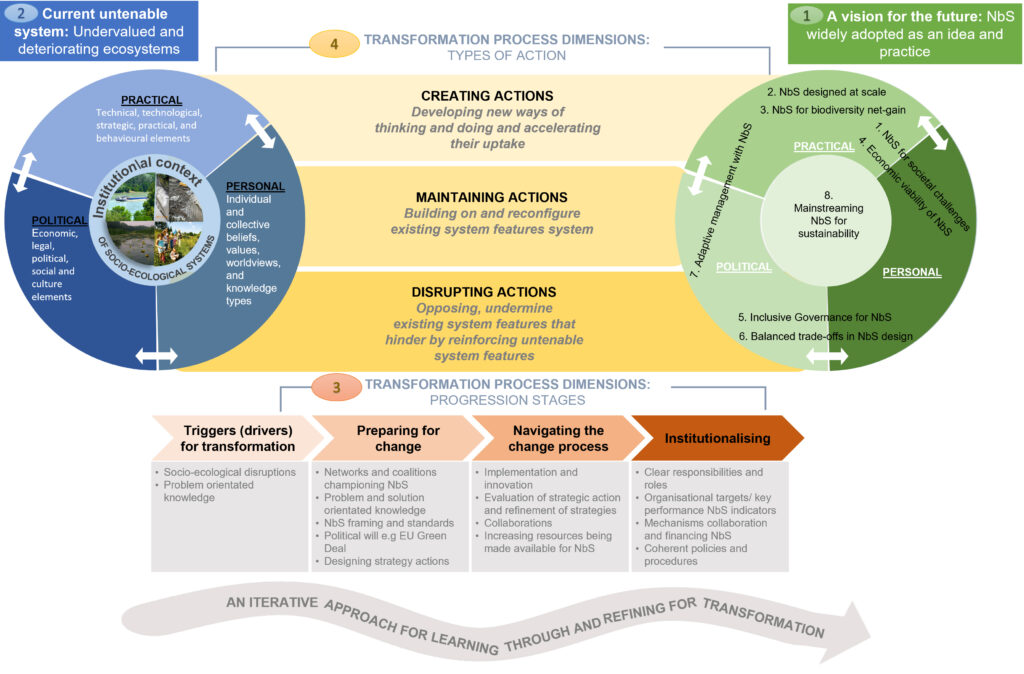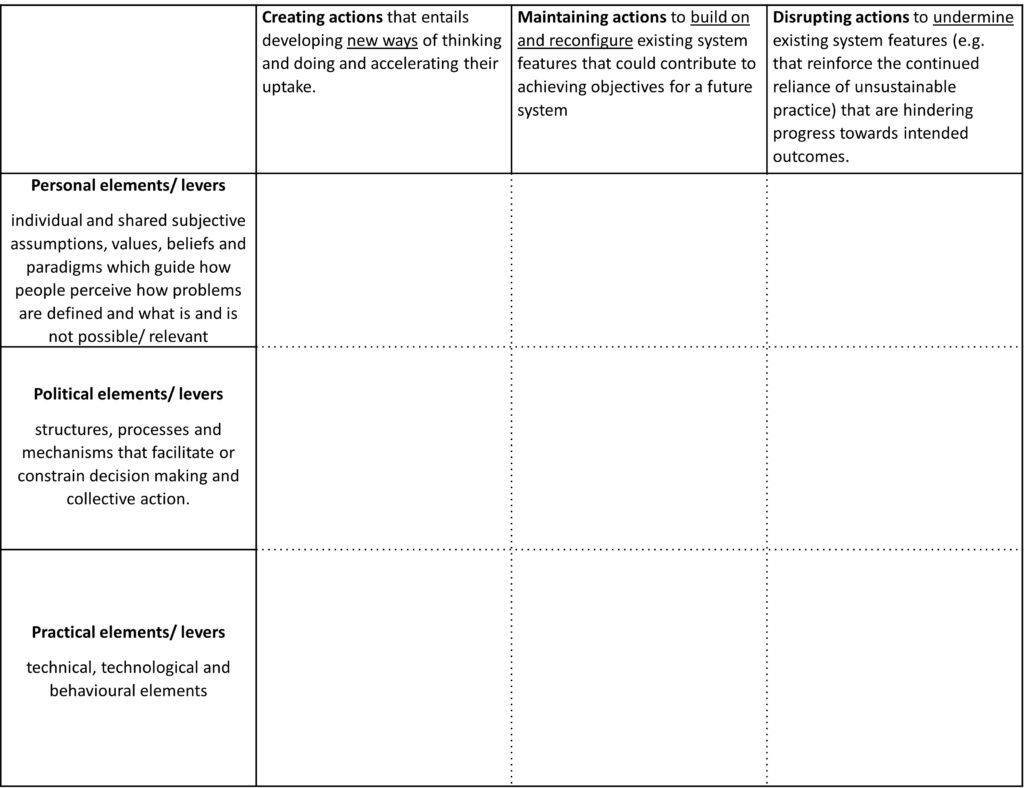We need to fundamentally change the relationship between business and nature – but how?
A Nature-based Solutions approach
Human activities have harmed our climate and the natural environment which supports our collective wellbeing. Standing still is no longer an option – fundamental change is needed to shift toward more sustainable futures.
This change should come across all parts of society, especially to those parts that may not have cared for nature in the past, either intentionally or not. At the core of this is the need to reorientate our collective relationship with nature, recognising how the natural environment can support business across economic sectors. For example, healthy ecosystems can help buffer unavoidable climate impacts that are already starting to be felt both economically and socially. This reorientation is the essence of the Nature-based Solutions concept, but we must now develop ways of putting these solutions into practice.
The need to transform institutional arrangements
It is widely accepted that shifting to more sustainable collective futures requires transformative types of change – going beyond technical tweaks to create a fundamentally new way of thinking and doing where ideas such as Nature-based Solutions are widely applied across economic sectors.

Shifting the relationship between sections of society, such as business, and the natural environment requires transformation of wider institutional arrangements to guide more positive human-nature interactions within large systems. For example, developing stronger incentives and pathways that encourage more businesses to protect and restore ecosystems to benefit business, local communities and wider society. If designed well, institutional arrangements can interconnect to reinforce and embed new ideas as a norm across organisational contexts. For strategic planners working to embed a Nature-based Solutions approach across large sections of society, this can however be a daunting task.
The need for strategic planning – but how?
This complexity in steering transformation means strategic planning is essential. By developing a framework for guiding this transformation and mainstreaming NbS in economic sectors, we aim to support such endeavours. The framework brings together core ingredients to help those developing strategies identify, reflect on and refine actions that together can, to a greater or lesser extent, help guide such fundamental change.
This includes the following four core ingredients;
- Intention: What is the purpose of change – where do we want to head?
- Context: What is the current situation – why is changed needed and what levers to work with?
- Process: What’s is already in place that could be useful and what is missing?
- How to work: How to engage with these levers to develop the institutional arrangements required to support the desired future?
With the complexity of transformation, it’s also important to adopt an iterative approach (learning and refining as the process unfolds). For example to incorporate new insights about the nature of obstacles and opportunities as they arise.
We developed an action-orientated framework involving all these ingredients (figure 1) and a simple matrix (figure 2) to help planning of actions by considering what levers could/ should be used and how (the types of action).


We have used this framework and matrix to guide ideas and reflections in developing strategic plans across 6 economic sectors within an EU funded project called MERLIN.
The scientific article presenting this framework is openly available to all here.
Blog by:
Dr Esther Carmen
Environmental Governance Researcher
Based in Aberdeen
Blog by Esther Carmen. Disclaimer: The views expressed in this blog post are the views of the author, and not an official position of the institute or funder.
